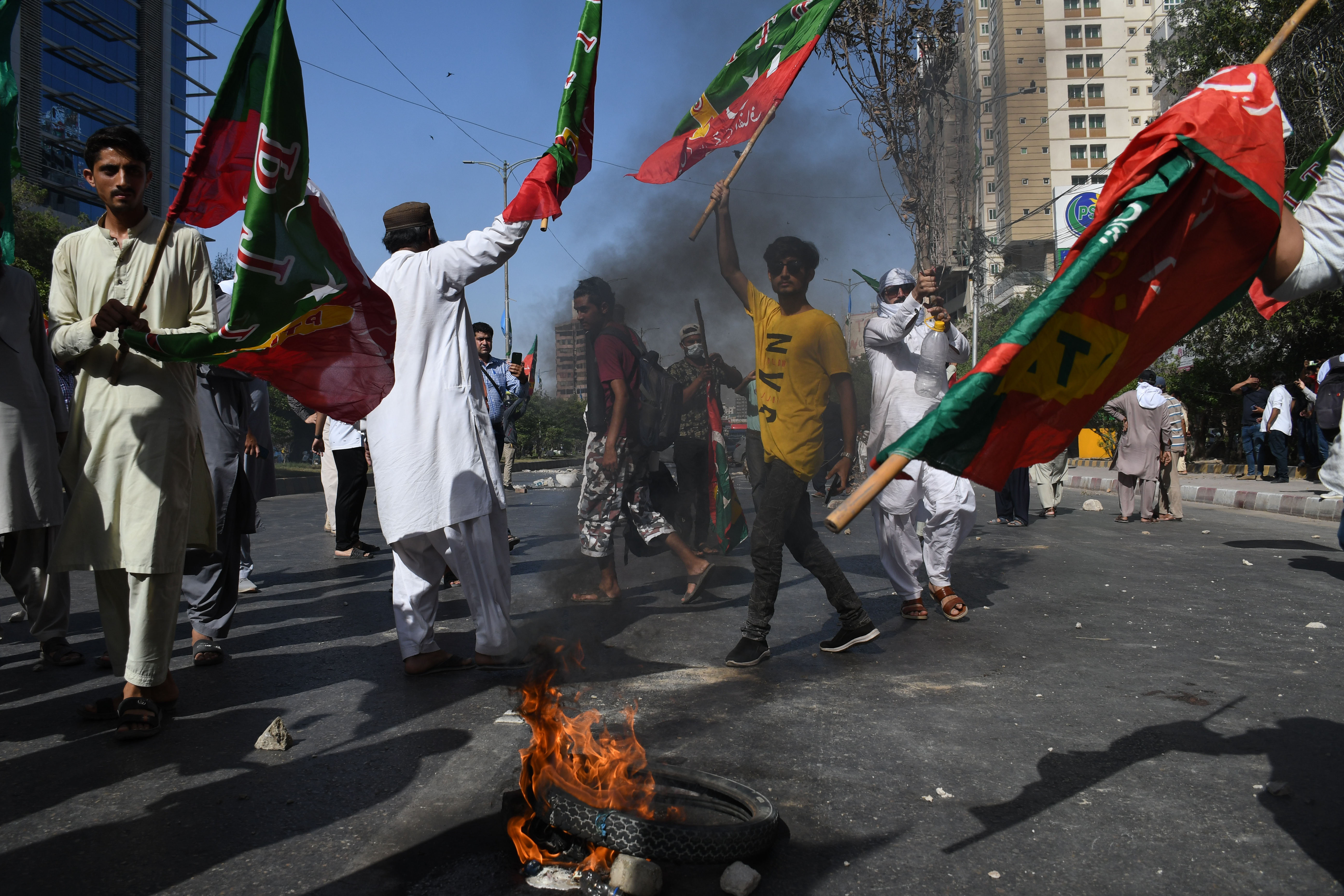
Rioters and their backers who attacked Pakistan’s state assets and military installations during protests that erupted after the arrest of former Prime Minister Imran Khan will be tried under army laws, the country’s civilian and military leaders have said.
The decision was announced on Tuesday after a meeting of the National Security Committee chaired by Prime Minister Shehbaz Sharif.
Thousands of Khan’s supporters took to the streets after his arrest in a graft case on May 9. People were seen burning and attacking police, government buildings, official and public vehicles, military assets and installations.
“The meeting endorsed to bring the miscreants, the planners who incited for violence and their facilitators to dock by trying them under constitutional provisions of concerned laws, including Pakistan Army Act and Official Secrets Act,” said a statement issued by Sharif’s office.
Sharif condemned the violence, saying that it came under the category of “terrorism” and adding that the army’s headquarters, an air force base and an office of the Inter-Services Intelligence agency were attacked.
“Whoever are the planners and whoever incited these miscreants … they don’t deserve any leniency,” Sharif said.
The decision amounted to an endorsement of the military, which said on Monday that the rioters and their handlers had been identified and would be tried under army laws.
Meanwhile, the Human Rights Commission of Pakistan (HRCP), an independent civil rights group, strongly opposed the use of those laws to try civilians.
“While those responsible for arson and damaging public and private property during the recent protests should be held to account, they remain entitled to due process,” the group said in a statement after Tuesday’s announcement.
Military courts, which proceed under the Army Act and related legislation, do not have to hold to the standard of evidence and process that regular courts are obligated to uphold, lawyer Abdul Moiz Jaferii told Reuters news agency.
Trying civilians in military courts is contrary to international law, according to Amnesty International’s Dinushika Dissanayake, who called the military’s intention of trying the rioters under army laws “alarming”.
“It is alarming to note that the Pakistani Army has stated its intention to try civilians under military laws, possibly in military courts,” said Dissanayake, Amnesty’s deputy regional director for South Asia.
“This is purely an intimidation tactic, designed to crack down on dissent by exercising fear of an institution that has never been held to account for its overreach.”
Khan’s party blames intelligence agencies
On Tuesday, ex-PM Khan’s Pakistan Tehreek-e-Insaf (PTI) party accused intelligence agencies of being responsible for the shootings and arson during the violence.
“We have ample amount of evidence to present to any inquiry that the arson and, in some places, shootings were done by [intelligence] agencies men who wanted to cause mayhem and blame it on PTI so the current crackdown would be justified,” the party said in a statement.
“PTI believes that identification of elements involved in this unusual incident of violence and chaos through a credible investigation is inevitable,” the statement said, without offering any evidence for the claim.
Khan, Pakistan’s 70-year-old former cricket World Cup-winning captain, has waged a campaign of defiance against the country’s powerful military, which controls the intelligence services, since being ousted from power last April through a parliamentary no-confidence vote.
Open criticism of the military, which has staged three coups and heavily influences domestic politics and foreign policy, is rare in Pakistan’s political mainstream.
At least 19 senior PTI officials have been arrested, some in overnight raids on their homes, after being accused of instigating the recent violence.







